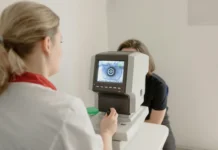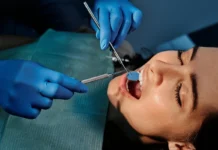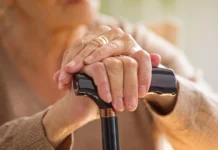Who doesn’t want beautiful skin? There are many reasons, other than looks, to practice good skin care. We’ll note the many advantages of good skin care as well as ways to improve your skin care routine. We’ll also touch on what can happen if you don’t practice good skin care and options to consider, including skin cancer life insurance.
We all know to wear sunscreen when we’re at the beach or the ski slopes, but not wearing sunscreen daily is actually dangerous. Getting into a daily habit of sunscreen use has many benefits aside from protecting you from sunburn. Sunscreen is your very best protection against developing skin cancer, no matter your skin tone.
It’s never too late to begin a regular sunscreen routine. Damage from UV rays is cumulative, so if you are not in the habit of using sunscreen, start now to protect your future self.
Do Eat Healthy Foods
Other important practices for good skin health include getting seven to eight hours of sleep each night, physical exercise, and drinking plenty of water. It is also an important consideration to be sure you are getting enough vitamin C in your diet. Vitamin C is vital to health and is one nutrient that cannot be synthesized in the human body.
Vitamin C must be obtained in the diet. Fresh fruits and vegetables contain loads of vitamin C, especially peppers, tomatoes, melons, apples, and citrus fruits.
Incorporating fresh fruits and vegetables into your regular meals is a great move for your health in general, but is vital for your skin care routine. Try adding a salad for dinner several times a week, or fresh fruit to your breakfast in the form of bananas, berries, or melons. Add a tomato or onion slice to your sandwich at lunch.
These additions to your diet will pay big dividends for your health, especially for your skin. Good diet habits will help your skin be more resilient, as well as appear brighter and more even-toned. Your skin will thank you, and they will taste delicious.
Vitamin C is a potent antioxidant and is a very beneficial ingredient in many beauty products. It is a powerful addition to many beauty preparations, especially in topical applications. One of the benefits of a vitamin C additive in skin care products is its ability to protect your skin from damage caused by free radicals. Another way to ensure you get all the vitamins you need is infusion therapy. Seattle IV can administer treatments in the comfort and privacy of your home.
Do Get Plenty of Vitamin C
This vitamin also helps even out skin tone and protects the collagen in your skin.
When shopping for products with vitamin C for application to your skin, keep in mind that more isn’t better, especially in products where vitamin C is combined with retinol.
Too much vitamin C in these types of products can contribute to skin redness and irritation. Look for only 10% to start out and use a little in a test to see if you’re overly sensitive to this combination.
Don’t Ignore Changes to Your Skin
Ignoring changes in your skin is dangerous. It’s important to pay attention to changes in your skin as part of your regular skin care routine. It is important to schedule an exam with a dermatologist. A consultation with a specialist will help you be sure you aren’t already dealing with a problem. There are several major types of skin cancers.
Melanoma is a very serious cancer, but early detection can eliminate it before it is a big problem. Melanomas are deadly if ignored. Basal cell carcinoma is the most common skin cancer, and if detected early is very treatable and rarely spreads.
While not as common as basal cell carcinoma, squamous cell is more serious because it is likely to spread (metastasize). Treated early, the cure rate is over 90%, but metastases occur in 1%–5% of cases. After it has metastasized, it’s very difficult to treat.
A dermatology exam is the best way to detect this cancer early, increasing your odds of successful detection and treatment. According to the Skin Cancer Foundation, skin cancer is the most common cancer both in the U.S. and across the world.
One in five Americans will develop skin cancer before they reach age 70. The rate is similar around the world. When detected early, the five-year survival rate for melanoma is 99%. Melanoma isn’t always an obvious problem and can be easy to ignore.
It can occur in inconspicuous areas and may not be noticed for quite a while. It is frequently slow-growing, especially early. Consulting with a specialist is important, and can give you peace of mind.
If you’ve never had many moles or freckles, your exam will probably be fairly quick. However, if you have many freckles or atypical moles, your initial visit could take some time. If there are areas of particular concern, your doctor is likely to take a biopsy.
A biopsy is a standard procedure and can help detect problems early.
A blood test might be required if you want to get life insurance as well.
Do Consult a Dermatologist
To prepare for a skin cancer exam with a dermatologist, first examine your skin yourself to see if there are any changes in your skin that are concerning to you. Make notes, and jot down any questions or concerns you have. It will help your doctor if you remove any nail polish that could obscure nail beds during the exam.
You might also consider wearing your hair loose. Melanomas can occur anywhere, including in the nail bed, scalp, and the bottom of the feet. Once you’ve had your exam and gotten expert advice and an “all clear” for your skin or a very early diagnosis, practice good habits and you can avoid some very serious problems later.
Don’t Forget to Wear Sunscreen
Rates of all types of skin cancer are increasing. The three most common types of skin cancer continue to rise all over the world. More people are diagnosed with skin cancer each year than the sum of all other types of cancer. Small steps now can help protect you from a bad outcome later. Get in the habit of practicing good skin care habits: Get enough sleep, eat a well-balanced diet with plenty of fruits and vegetables, get regular exercise and wear sunscreen.

Teresa Johnson writes and researches for the life insurance comparison site, QuickQuote.com. Teresa cares about educating others on the dangers of skin cancer, particularly melanoma. She has family members diagnosed with skin cancer and lost her father to melanoma.
Last Updated on 4 years ago by George Morgan

































